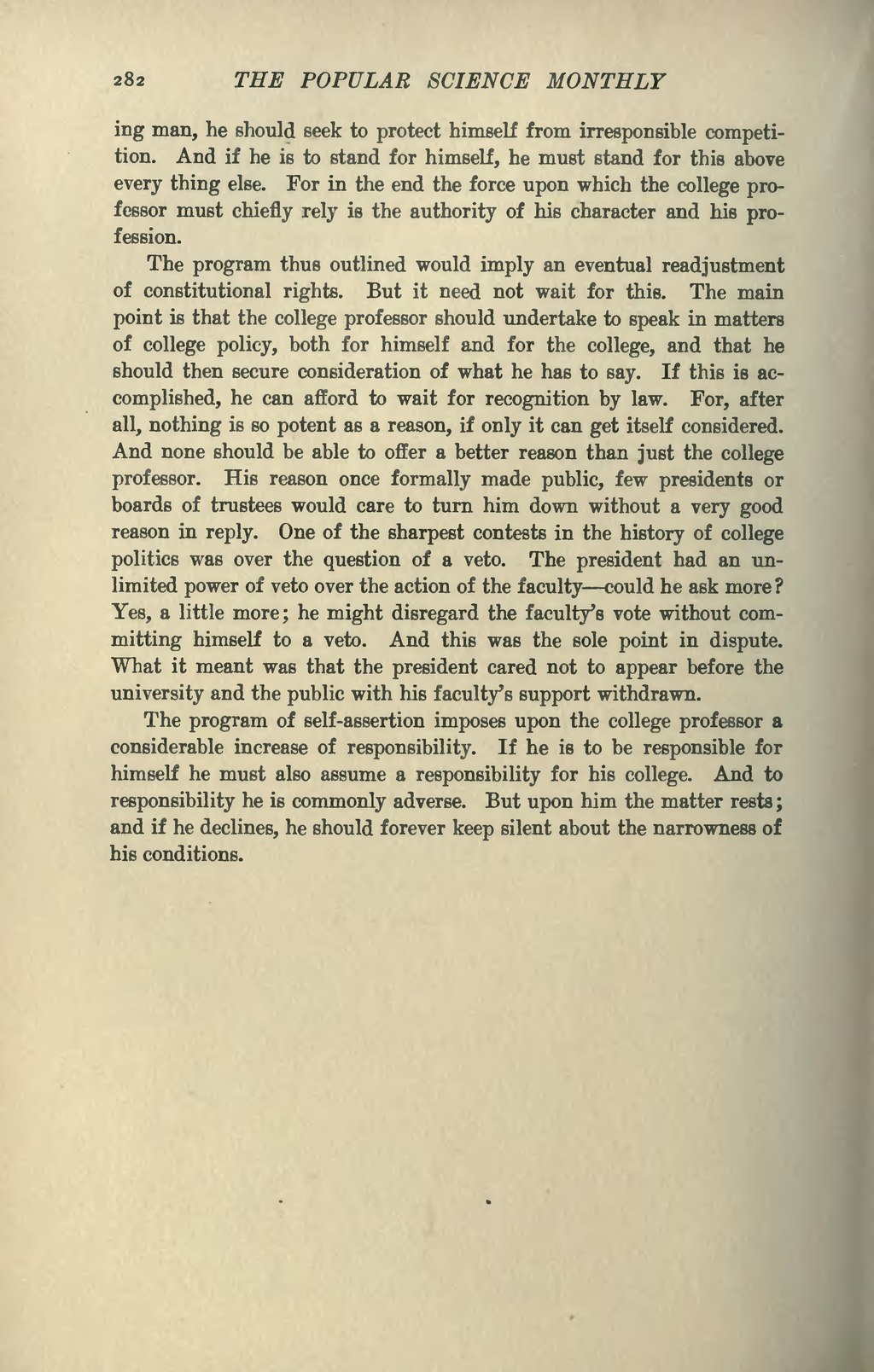ing man, he should seek to protect himself from irresponsible competition. And if he is to stand for himself, he must stand for this above every thing else. For in the end the force upon which the college professor must chiefly rely is the authority of his character and his profession.
The program thus outlined would imply an eventual readjustment of constitutional rights. But it need not wait for this. The main point is that the college professor should undertake to speak in matters of college policy, both for himself and for the college, and that he should then secure consideration of what he has to say. If this is accomplished, he can afford to wait for recognition by law. For, after all, nothing is so potent as a reason, if only it can get itself considered. And none should be able to offer a better reason than just the college professor. His reason once formally made public, few presidents or boards of trustees would care to turn him down without a very good reason in reply. One of the sharpest contests in the history of college politics was over the question of a veto. The president had an unlimited power of veto over the action of the faculty—could he ask more? Yes, a little more; he might disregard the faculty's vote without committing himself to a veto. And this was the sole point in dispute. What it meant was that the president cared not to appear before the university and the public with his faculty's support withdrawn.
The program of self-assertion imposes upon the college professor a considerable increase of responsibility. If he is to be responsible for himself he must also assume a responsibility for his college. And to responsibility he is commonly adverse. But upon him the matter rests; and if he declines, he should forever keep silent about the narrowness of his conditions.
